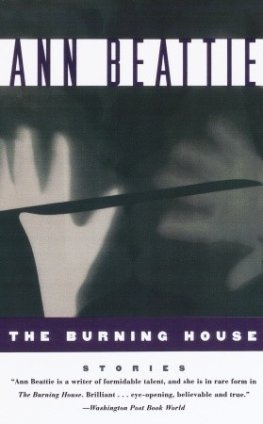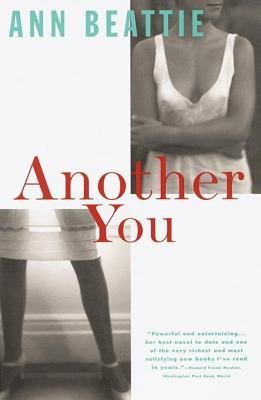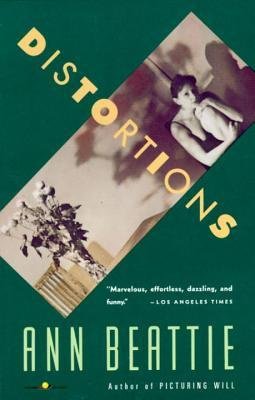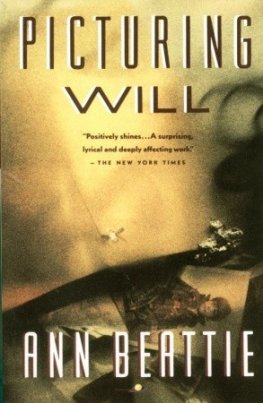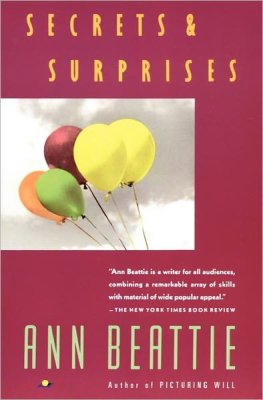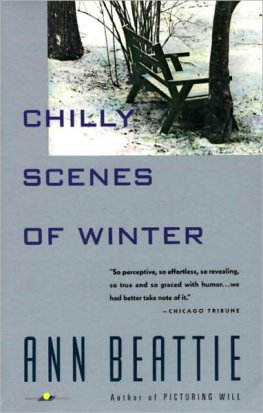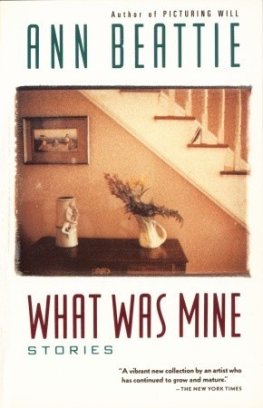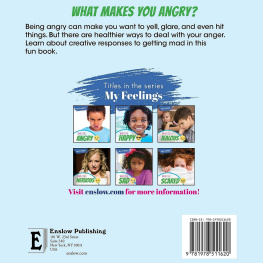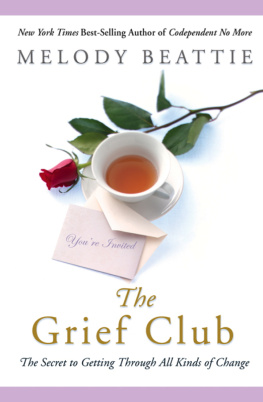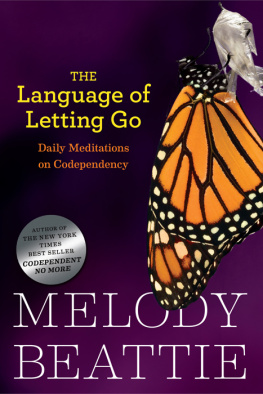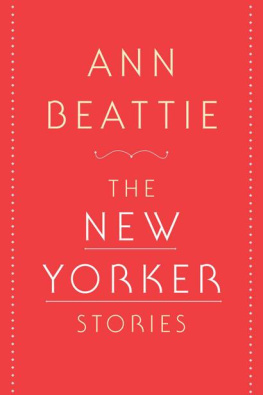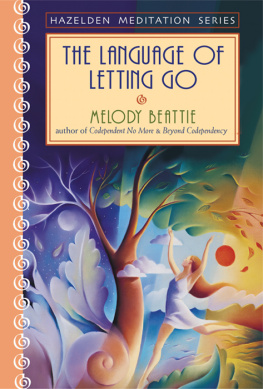
Ruths house, early morning: a bowl of apples on the kitchen table, crumbs on the checkered tablecloth. I love you, she says to Andrew. Did you guess that I loved you? I know it, he says. Hes annoyed that his mother is being mushy in front of me. He is eager to seem independent, and cranky because he just woke up. Im cranky, too, even after the drive to Ruths in the cold. Im drinking coffee to wake up. If someone said that he loved me at this moment, Id never believe him; I cant think straight so early in the morning, hate to make conversation, am angry at the long, cold winter. Andrew and I are both frowning at Ruths table and she as always is tolerating us. More coffee? Ruth asks me. I nod yes, and let her pour it, although I could easily get up and walk to the stove for the pot. What about brushing your hair? she says to Andrew. He gets up and leaves the room, comes back with her wooden brush and begins to brush his hair. Not over the table, please, she says. He has finished. He puts the brush on the table and looks at me. Were going to miss the train, he says. Theres plenty of time, Ruth says. Andrew looks at the clock and sighs loudly. Ruth laughs. She rubs her finger around the top of the open honey jar and sucks it. Come on, I say to Andrew. Youre right. Id rather be early than late. I ask Ruth: Anything from the city? If she did want something, she wouldnt say she hates to take things, because she has no money to buy things in return. Nor does she want many things around: the kitchen has only a table and four chairs. What furniture she has came with the house. No, thanks, she says, and turns off the radio. She says again, as we go out the door, Thanks. She has a hand on each of our backs as I open the door and cold floods into the house.
Once or twice a month, on Wednesdays, Andrew and I take the train from Connecticut to New York, and I walk down the streets and into stores and through museums with him, holding his little hand, which is as tight as a knot. He does not have friends his own age, but he likes me. After eight years, he trusts me.
Today he is wearing his blue jeans with the Superman patch on the knee. If Superman launched himself from Andrews knee, he would be flying a foot or so off the ground. People would think that small figure in blue was a piece of trash caught by the wind, a stick blowing, something to gather their hems against.
Im hungry again, he says.
Andrew knows that I dont eat during the day. He says again because he has already had oatmeal at home and a pastry at the fast-food shop across from the train in Westport at ten oclock, and now its only twelve too early to eat another meal and he knows Im going to say: Again?
Andrew. The morning before the night he was born, Ruth and I swam in Halls Pond. She loved it that she could float, heavy as she was, about to deliver. She loved being pregnant and wanted the child, although the man who was the father begged her to have an abortion and finally left her six months before Andrew was born. On the last day that we swam in Halls Pond, she was two weeks overdue. There wasnt a sign of the pain yet, but her tension made me as dizzy as the hot sun on my head as I stood in the too-cold water.
And that night: holding her hand, my hand finally moving up her arm, as if she were slipping away from me. Take my hand, she kept saying, and I would rub my thumb on her knuckles, squeeze her hand as hard as I dared, but I couldnt stop myself from grasping her wrist, the middle of her arm, hanging on to her elbow, as if she were drowning. It was the same thing I would do with the man who became my lover, years later but then it would be because I was sinking.
Andrew and I are walking downhill in the Guggenheim Museum, and I am thinking about Ray. Neither of us is looking at the paintings. What Andrew likes about the museum is the view, looking down into the pool of blue water speckled with money.
I stand beside him on the curving walkway. Dont throw coins from up here, Andrew, I say. You might hurt somebody.
Just a penny, he says. He holds it up to show me. A penny: no tricks.
Youre not allowed. It could hit somebody in the face. You could hurt somebody, throwing it.
I am asking him to be careful of hurting people. When he would not be born, an impatient doctor used forceps and tugged him out, and there was slight brain damage. That and some small paralysis of his face, at the mouth.
He pockets the penny. His parka has fallen off one shoulder. He doesnt notice.
Well get lunch, I say. Take your pennies and throw them in the pool when we get down there.
He gets there before me. I look down and see him making his wishes. I doubt that he knows yet what to wish for. Other people are throwing money. Andrew is shy and just stands there, eyes closed and squinting, holding his pennies. He likes to do things in private. You can see the disappointment on his face that other people are in the world. He likes to run with his arms out like the wings of a plane; he likes to be in the first seat in the train compartment to sit with only me where three seats face two seats across from them. He likes to stretch his legs. He hates cigarette smoke, and the smell of perfume. In spring, he sniffs the breeze like an old man sniffing cognac. He is in the third grade at the elementary school, and so far he has had only slight trouble keeping up. His teacher who has become Ruths friend is young and hopeful, and she doesnt criticize Ruth for the notes she writes pretending that Andrew has been ill on the day the two of us were really in New York. Andrew makes going to the city fun, and for that and because I know him so well, and I pity him I almost love him.
We go to his favorite place for hamburgers a tiny shop on Madison Avenue with a couple of tables in the front. The only time we sat at a table was the time that Ray met us there, Andrew liked sitting at a table, but he was shy and wouldnt say much because Ray was there. The man behind the counter knows us. I know that he recognizes us, even though he doesnt say hello. We always order the same thing: I have black coffee (advertised as the worlds best); Andrew has a bacon cheeseburger and a glass of milk. Because Ruth has taught him to make sure he looks neat, he wipes the halo of milk off his mouth after every sip. His hands get sticky from the milk-wet napkin.
Today it is bitter cold, and I am remembering that hot and distant summer. I have hardly been swimming in eight years not since Arthur and I moved downstate, away from Halls Pond. When we were in graduate school together, Ruth and I would go there to study. She would have her big, thick Russian novels with her, and I was always afraid she would drop one into the water. Such big books, underlined, full of notes, it would have seemed more than an average tragedy if she had lost one. She never did. I lost a gold chain (a real one), and my lighter. One time my grocery list fell out of my book into the water and I saw the letters bleed and haze and disappear as it went under.
We went there earlier in the day than other people not that many people knew about Halls Pond then so we always got to sit on the big rock. Later in the day, people would come and sit on the smaller rock, or stand around on the pier going out to the water. Some of the people swam naked. One time a golden retriever jumped onto our rock, crouched, and threw its head back and howled at the sky, then ran away through the woods, its feet blackening in the wet dirt by the waters edge. Ruth was freaked out by it. She wrote a poem, and in the poem the dog came to give a warning. Not an angel, a dog. I stared at the poem, not quite understanding it. Its meant to be funny, she said. When the dog ran off, Ruth had put her hands over her mouth. The next summer, when I married Arthur, she wrote a poem about the bouquet I carried. The bouquet had some closed lilies, and in the poem she said they were like candles as big as Roman candles to her eye, as if my bunch of flowers were going to explode and shower down. I laughed at the poem. It was the wrong reaction. Now, because things have come apart between Arthur and me, it has turned out to be prophetic.

